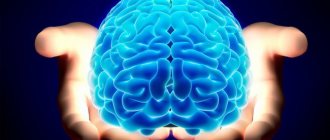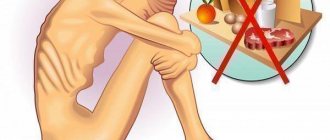Psychiatry
Constant delays and lack of time provoke stress and neurosis. It is important to know how to avoid nervous tension.
The pace of life in the modern world is so fast and fleeting that it cannot be called a “safe haven”. Instead of calm and regularity, activity comes to the fore. Over time, the realization comes that it is physically impossible to do everything at once. Excuses in this regard can sound like anything: lack of time, unforeseen circumstances, etc.
A business man is torn between desires. He has to wrestle with how to fit the solution of his problems into 24 hours, 10 of which are allocated to restore strength and the nervous system. Considering the amount of work, I want to do everything, but with high quality. Everyone knows that if you direct all your energy in one direction, to solve one issue, this will speed up the process of its implementation.
Overstrain often occurs at work.
But people try to do everything at the same time, which may be subjectively faster, but not reliable. Tension arises, and if you let yourself go at all, nervous exhaustion is guaranteed. It is this disease that is a consequence of brain overstrain and belongs to full-fledged nervous disorders.
Emotional stress is not good for efficiency. This is followed by fatigue of the whole body and increased melancholy. When you no longer want to do anything. In general, the causes of nervous tension in adults are:
- personal problems;
- difficulties in work, study;
- presence of diseases;
- money problems;
- heavy psychological stress, stress;
- worry about others;
- adaptation to new living conditions or team;
- loss of a loved one.
According to research conducted in 1996, 24% of stress was caused by problems in relationships with loved ones.
Causes of nervous tension
Residents of large cities are more often predisposed to nervous diseases than residents of villages. In women, the symptom occurs more often than in men. Mostly, nervousness and irritability overtakes people aged 35-40 years.
But stress does not appear on its own; it requires provoking factors:
- lack of quality rest and proper sleep;
- excessive physical activity leading to physical overstrain;
- psychological stress at work and at home;
- inability to relax;
- chronic somatic pathologies;
- fast lifestyle;
- unhealthy lifestyle, jet lag;
- alcohol, smoking, drugs.
Signs of overvoltage
Symptoms of nervous tension can be different. First of all, human behavior changes. Excessive irritability can be noticed by others; only the sick person can know about muscle pain.
The main symptoms of nervousness are:
- constant fatigue;
- apathy;
- irritability;
- absent-mindedness;
- forgetfulness;
- frequent headaches;
- isolation;
- drowsiness.
If several symptoms are noted in the behavior, then relaxation methods should be explored. In addition to the main symptoms, accompanying ones may appear. Frequent outbursts of anger, intolerance towards others, impaired emotional stability, especially with loved ones, are symptoms of nervous overstrain. What was previously pleasing begins to irritate. These could be children, loved ones, work or hobbies. The person doesn't want to do anything.
Women experience a decrease in libido or an inability to obtain sexual satisfaction. In men, potency decreases. There are malfunctions in the gastrointestinal tract, heart, muscle numbness, changes in blood pressure, arrhythmia, migraine, decreased immunity.
Treating a nervous breakdown at home
Have you encountered such a thing as nervous exhaustion?
The disease has synonyms: asthenic neurosis, neurasthenia, nervous fatigue, nervous weakness, chronic fatigue. This is one of the forms of neurosis that is very common in our modern world.
Defined as a type of psycho-emotional state that occurs as a result of stress, increased intellectual or emotional stress. Nervous exhaustion (NFF) can be considered both a symptom and a precursor of major depression.
This condition negatively affects cognitive abilities, memory, physical capabilities and other biological indicators.
In general, NI prevents a person from working normally, relaxing, communicating with people – living!
If your body has not coped with prolonged stress, heavy loads (emotional and physical), or coped, but until a certain time, and then gave up, nervous exhaustion sets in.
The causes of nervous exhaustion can be very diverse:
- abnormal level of physical activity, which completely exhausts the body;
- regular mental activity associated with monotonous, boring work: proofreader, operator, accountant;
- irregular working hours;
- stress;
- the presence of constant irritants in life;
- chronic lack of sleep;
- unbalanced diet (which provokes a lack of vitamins);
- infections;
- surgical intervention;
- injuries;
- intoxication (alcohol, smoking, drugs, medications);
- somatic diseases;
- in the period after pregnancy.
The above processes provoke chemical disturbances in the brain.
A neurasthenic state, for a more precise description, can be called a “burnout” of the body’s forces.
Recognizing this disease is not an easy task. And all because it is often confused with depression, laziness, bad character or somatic illness.
So it turns out that a person is trying to cure depression and headaches. VSD. but in fact, it eliminates not the cause, but the effect (neurasthenia).
And the condition, naturally, will not improve until the root problem is cured.
The following are signs of nervous exhaustion:
- increased irritability, emotional instability, short temper;
- sometimes a person can even be very cheerful from the outside, but at the same time constantly talk “about nothing”, not being aware of his problems and mistakes;
- impatience: the patient becomes very aggressive because of the waiting (have you noticed how differently people handle queues?);
- inappropriate attitude towards large crowds of people;
- loss of sense of humor;
- constant feeling of weakness, fatigue: even after sleep;
- regular headaches;
- inability to concentrate, constant distraction by external factors (light, sound, own thoughts);
- ringing in the ears, blurred vision;
- weight loss, appetite;
- decreased attraction to the opposite sex or sexual dysfunction;
- insomnia: a person cannot fall asleep due to the flow of thoughts, suffers from nightmares;
- increased level of anxiety, phobias;
- chronic forgetfulness, impaired coordination, speech;
- labored breathing;
- concomitant diseases of the body: infections, back pain, or other problems to which a person is predisposed;
- bad habits as a symptom that a person is trying to overcome negative conditions;
- low self-esteem, loss of self-confidence.
As you can see, this disease can “put on the mask” of many other disorders in the body, due to the versatility of its manifestations.
When going into the forest, take care of protection from ticks. Otherwise, you can get cerebral encephalitis.
Thunderstorm headache medicine Betaserc - reviews of patients and doctors about which we collected and analyzed in our material.
Symptoms of nervous exhaustion in women and men are often similar to the following diseases:
- vision: spasm of accommodation;
- infectious and skin diseases: chronic mononucleosis, herpes, neurodermatitis, psoriasis, tonsillitis (a consequence of lack of immunity);
- gynecology: cervical erosion, thrush;
- musculoskeletal system: osteochondrosis of the cervical spine, muscle pain, joint problems;
- cardiovascular system: arrhythmia, tachycardia, vegetative-vascular dystonia, circulatory disorder of the brain;
- hematopoietic system: low hemoglobin;
- endocrine disorders: diabetes mellitus, sexual dysfunction;
- Gastrointestinal tract: functional digestive disorders, nausea, vomiting, dysbacteriosis, chronic gastritis, ulcers.
It turns out that if you have neurasthenia, you can mistakenly go to a neurologist, therapist, ophthalmologist, dermatologist, orthopedist... All these doctors will most likely see “their” disease and treat it.
However, this will not eliminate your problem and your overall condition is unlikely to improve. Cure one thing and the problems in the body will not stop.
It is advisable to seek help from a competent psychotherapist if you know and realize that the causes of neurasthenia are really present in your life.
The state of the body after the onset of exhaustion will definitely negatively affect the functioning of virtually all of its systems (selectively).
For comparison, think about whether a car can start without gasoline? Will the remote control work with dead batteries? A person, by nature, also “breaks down” when one of his systems exhausts its reserves.
However, many make certain volitional efforts, or due to habit, lead a lifestyle that causes more and more harm every day.
Alas, we are not eternal, and nervous exhaustion also reaches peak states:
- apathetic depression, in which a person is unable to do anything;
- exacerbation of chronic diseases;
- mental illness (even serious, associated with personality disorders or incorrect perception of the world, manic, obsessive states);
- suicide;
- social consequences: deterioration of relationships with loved ones, problems at work;
- inability to live fully and happily.
There is a suspicion that no one wants such states for themselves.
Of course, when you feel the first symptoms of nervous exhaustion. You should definitely start treatment. However, it is much easier to do everything on your part so as not to acquire neurasthenia at all.
And believe me, preventive measures are quite simple. They should become a habit for every person.
Typically, the treatment of nervous exhaustion and the elimination of its consequences and symptoms is carried out in a comprehensive manner. Doctors can prescribe herbs and medications that normalize the functioning of the nervous system.
But the main thing is a qualitative change in the usual, harmful way of life.
This is normal sleep, proper rest, healthy eating, elimination of stress factors, water procedures, diet (not for weight loss, but simply eliminating harmful foods from the diet), regular vacation.
If you love and respect yourself, don’t create problems and don’t overwhelm yourself with work, then your health will not suffer.
Don't be your own enemy!
Among the causes of nervous exhaustion are past stress, post-traumatic conditions, and severe overwork. Signs of nervous exhaustion may include cognitive, psychoemotional or psychosomatic disorders. This condition requires timely treatment.
Exhaustion of the nervous system occurs as a result of long-term overstrain of all the forces of the body. Among the causes of this condition:
- long-term lack of sleep;
- psycho-emotional stress;
- prolonged exposure to stress;
- depression;
- severe illness;
- mental and physical stress.
The nervous system can become depleted due to prolonged exposure to stress. This condition occurs as a result of overwork of the body. Each person has his own reserve of strength, which is replenished during a night's rest. If you expend energy for a long time, for example, doing heavy physical labor or being exposed to stress, while sacrificing hours of sleep, the body does not have time to recover. This particularly applies to the human nervous system.
For the development of this condition, one negative factor is not enough. Exhaustion develops from several factors at once, such as extreme fatigue, lack of nutrients and sleep disturbances.
Disruption of the central nervous system is a harbinger of depression. At the same time, exhaustion can develop against the background of an existing depressive state or asthenic syndrome.
When the nervous system is depleted, symptoms and treatment largely depend on the patient’s health status. Nervous exhaustion is characterized by a variety of symptoms, both cognitive and psychoemotional disorders.
Cognitive impairment is a decrease in mental abilities due to some negative factor; in this particular case, nervous exhaustion is such a factor. Cognitive impairment is characterized by the following symptoms:
- decrease in intellectual activity;
- impaired concentration;
- irritability;
- inability to concentrate on the task at hand;
- memory disorders.
With nervous exhaustion, symptoms of cognitive disorder appear against the background of excessive intellectual or psycho-emotional stress.
This happens, for example, if it is necessary to complete a complex project in a short time and a person pays all his attention to work, forgetting about a balanced diet and a normal night’s rest.
With nervous exhaustion, the symptoms of psychoemotional disorder are as follows:
- apathy;
- worsening mood;
- constant feeling of fatigue;
- sleep disturbance;
- decreased libido.
It cannot be said unequivocally that these symptoms are observed in every case of pathology. In many ways, the signs of nervous exhaustion depend on the duration of the negative impact of stress or overexertion on the body of a particular patient.
Possible psychosomatic symptoms of nervous exhaustion:
- pain in the heart area;
- aching headache or migraine;
- dizziness;
- panic attacks;
- decreased appetite;
- worsening sleep;
- dyspnea;
- sudden weight loss.
Psychosomatic disorders can manifest as blurred vision, changes in blood pressure and other symptoms characteristic of vegetative-vascular dystonia.
Symptoms of nervous exhaustion in women after childbirth include irritability, loss of energy, and mood swings.
Having understood the signs of exhaustion of the nervous system, you should not delay a visit to a neurologist. For nervous exhaustion, treatment is aimed at normalizing the activity of the patient’s central nervous system.
- There are forms of neurosis in which the bulimic (constant feeling of hunger and the desire to remove it) or anorexic (feeling of rejection of food) factor predominates;
- Obsessive-compulsive neurosis is common, the symptoms of which are expressed in the patient’s daily performance of any ritual actions (this could be: washing hands, wearing the same clothes, cooking according to certain rules, and much more);
- When patients experience cardiac neurosis, it is important to distinguish the symptoms and treatment of this condition from true angina and coronary artery disease. In case of nervous disorders, the signs of the disease can quickly self-destruct when the factor that caused them (stress, negative emotions, conflict) is eliminated, while the symptoms of heart disease are alleviated by taking special medications, for example, nitroglycerin. In addition, complaints of people with neuroses about pain in the heart are often not accompanied by objective signs (an increase in the number of heartbeats, an increase in blood pressure); in people with cardiac pathologies, these signs are one of the main ones;
- Anxiety neurosis manifests itself as emotional tension, motor excitability and physical stiffness. People with increased anxiety cannot communicate normally with others, relax and unwind.
Harm from nervous tension
There is a popular wisdom: “All diseases come from nerves.” Nervous stress can provoke various diseases. Symptoms of nervous tension and prolonged stress lead to the following diseases:
- cardiac arrhythmia;
- hypertension;
- diabetes;
- heart attack;
- stroke;
- autoimmune diseases;
- gastritis;
- stomach ulcer;
- pancreatitis;
- irritable bowel syndrome;
- diarrhea;
- headache;
- squeezing pain.
Health deteriorates, conflicts arise with others, unreasonable aggression destroys relationships with loved ones - all this leads to protracted conflicts and a deterioration of the situation.
Often patients relieve tension by taking it out on the weaker, and these are children. An uncontrolled outburst of emotions does not solve the problem, but leads to disagreements within the family and at work. Constant irritation and lack of joy lead to nervous exhaustion. After rash actions, a feeling of guilt and self-flagellation appears. The more a person tries to control himself, the more guilt he experiences after failure. Nervous overstrain turns into a nervous breakdown.
Nervous breakdown as an extreme point
When a person is under constant stress, there is no other option than a nervous breakdown. When the nervous system is overstrained, insomnia occurs, and when a person does not have adequate rest and sleep, this leads to even greater fatigue.
If the first symptoms indicate a mild form of overstrain, then a pronounced emotional state is observed here. As fatigue and irritability increase, a person is able to lash out at others.
This can manifest itself in aggression or hysterics, so it is important to protect yourself from such nervous breakdowns.
How to relieve overvoltage?
To understand how to relieve stress on the nervous system, you need to analyze your daily routine. Time for a full night's sleep should be at least 8 hours. During work, you should take breaks for rest and lunch. Morning exercise starts the body and improves your mood. You need to find time for daily physical activity. The gym or evening walks help relax the nervous system. On weekends, you need to go out into nature, walk in the park, and stop watching TV. A properly structured work and rest schedule will help the body recover.
In addition, you need to understand where the problem came from and get rid of it. To do this you need:
- Understand the cause of the disease. What makes the body work harder? This could be work, lack of vacation, quarrels, psychological discomfort in a team or family.
- Get rid of fear, which increases nervousness.
- Tightness of the body, understatement causes tension in the body. We need to get rid of this. If you cannot say your feelings face to face, you can write a letter or SMS. It is not necessary to send a message, the main thing is to free yourself from accumulated negative energy.
- Weakness after nervous overstrain does not allow the realization of desires. You need to strive for what you want.
How to protect yourself from such symptoms?
How to relieve nervous tension resulting from various factors: lack of sleep, problems at work, in the family, in relationships? You should use the following tips:
- Taking a relaxing bath. If a state of complete powerlessness finds a person at home, then he needs to take warm water, add medicinal herbs, sea salt to it and immerse himself in this oasis of comfort and solitude. You need to disconnect from everything, just enjoy the moment of relaxation.
- Listening to pleasant music.
- Laughter. Smiles and laughter are a real weapon against stress. You need to use these simple methods for your own benefit. And to make yourself laugh, you should watch a comedy, sing your favorite catchy song, have fun and dance, and then a person will no longer wonder: “How to relieve nervous tension?”
- Sports activities. You should perform those exercises that a person likes.
- Friendship. If a friend understands and supports a person in a state of complete powerlessness, this will help relieve nervous tension.
- Regular walking can work wonders.
- Taking sedative herbs, such as valerian.
Yoga for stress relief
Yoga is the most effective way to combat stress and irritation. Relaxing music, which calms the nervous system, and slow exercise increase gamma-aminobutyric acid levels. This leads to a decrease in neuronal activity and relaxes the person.
To get a positive effect, activities must be enjoyable. Yoga is not just a set of exercises, it is a technique of self-knowledge of oneself, body, and breathing. People who practice yoga regularly are much less likely to experience irritability.
Yoga allows you to free your brain from unnecessary thoughts and direct energy to freeing and cleansing the body. The result appears after the first workout. It is important to find an experienced trainer who will select the right exercises in accordance with your physical fitness. Yoga can be practiced at any age, with any body type and weight.
Meditation is one of the areas of yoga and allows a person to look inside himself and find spiritual harmony. Daily meditation allows you to normalize a person’s emotional state and develop a “vaccination” against stress.
Relieving tension from the head
Massage is an old, but at the same time proven method of healing from the bad condition of prolonged nervous anticipation. It is very useful for mental and emotional stress. It relieves pain, relaxes muscles and normalizes blood circulation in the part of the human body where the brain is located. How to relieve tension in the head so that the effect is immediate and lasting? To do this, you must perform the massage correctly.
- It is not necessary to involve a specialist to influence the patient. A person can easily relieve tension in his head. He should sit or lie down more comfortably.
- It is advisable to dim or completely turn off the lights in the room. After all, a bright lamp can increase tension in the head.
- Now you can begin to perform self-massage: first, the back surface of the ears is warmed up, using the pads of the fingers. The person should slowly perform circular movements.
- Then you should place your hands on both sides of your head and lightly press on it. You can move forward and backward, slide up and down 2 centimeters. You need to try to move your head, not your fingers.
- How to relieve tension in the head if one area of this organ is strongly bothering you? In this case, you can use the acupressure technique. You need to pinch the skin in the area that hurts between your thumb and forefinger and squeeze it for 5 seconds, and then release. Then you should relax your hands for 10 seconds, but you do not need to remove your fingers from there. You can perform this exercise for 10 minutes or more until a feeling of relaxation comes. This is how you can relieve tension with your hand.
Music for stress
Music is used to relieve nervous tension, but not every melody is suitable. Most often, relaxation music is used to calm the nervous system. Relaxing to a pleasant melody or sounds of nature will reduce the time needed for rest.
With the help of fast, cheerful music you can lift your mood during the day, while a slow composition helps relieve stress. Music affects the state of the body as a whole; music therapy is equivalent to other types of stress relief.
To choose a melody, you must base it on your own preferences. If the recommended composition causes unpleasant sensations, then you should stop listening to it.
Help yourself!
You can relieve nervous tension and quickly pull yourself together in a stressful situation at home without the help of doctors. In order to help yourself, you can use some recommendations:
- Be sure to let your nervous system relax .
- Take seriously the correct rotation and balance of work and rest .
- The ideal environment for the nervous system is when a person is in a calm and friendly environment . This is sometimes difficult to adhere to due to the fact that it is not always possible to choose a work environment, but a friendly state at home can and should be ensured.
- Any physical exercise and sports have a beneficial effect not only on overall health, but also on the nervous system.
- When an emotional state requires help, you need to consult a doctor for the right recommendations .
It is impossible to avoid all situations in life that can bring negative impacts. But it is possible to help the nervous system, get rest, relaxation and relaxation. Pay more attention to proper sleep.
You should not drink coffee before bed, smoke or drink alcohol - this will help avoid problems with insomnia. Walking in the fresh air before bed will also help. Proper sleep means following a routine; you need to go to bed and get up at the same time.
If there are problems of a family nature, or at work, perhaps difficult relationships with colleagues, you should solve them as quickly as possible, but always in a calm and quiet environment.
When a person is surrounded by unresolved problems, it is impossible to relieve tension in the head, which sooner or later will lead to a nervous breakdown. When situations cannot be resolved on your own, you need to contact a psychologist who will find the right method and give advice.
Difficult situations in the family are dangerous not only for adults, but also for children, since they perceive everything psychologically very difficult.
Physical activity has a very good effect on the nervous system. Exercising will help you forget about troubles; in addition, during exercise, the hormone of joy - endorphin - is produced. Also, a little fatigue from sports will help you fall asleep faster, and there will be no problems with insomnia.
Don't forget about the beneficial effects of playing sports. This can be completely different physical exercises - fitness, swimming, exercise equipment, cycling. It is worth paying attention to yoga, as it allows you to increase stress resistance and establish protection for situations that can cause nervous tension.
Such activities will help you relax, normalize your general condition, strengthen your sleep and put your emotional state in order. Breathing exercises also have a beneficial effect on the nervous state.
You can engage in dancing and creativity, which will also have a beneficial effect on the nervous system. Don’t forget about relaxation, massage, swimming pool, gymnastics, all this can relieve emotional and physical stress. Calm music, meditation, and sounds of nature will calm the nervous system.
ethnoscience
Folk remedies that are good for stress and nervous tension:
- Before going to bed, take a bath with the addition of lavender , use the proportions: 50 g of the plant per 1 liter of boiling water, pour and leave for 10 minutes, then add to the bath.
- You can use adding oils to the bath , it could be chamomile, mint, jasmine, orange. 5 to 10 drops will be enough. You can use decoctions of different herbs for a bath: string, calendula, oregano, valerian, lemon balm, hop cones - all of them can have a calming and relaxing effect.
- You can use a fragrant pillow , which is easy to make yourself; just sew hop cones into a rag bag; it should be placed next to your sleeping area. You can also use any herbs that relieve nervous tension - lavender, mint, lemon balm, St. John's wort.
- You can prepare a tea or decoction that can normalize sleep, relieve tension and relax.
To prepare such teas, you can use the same herbs that are included in medications.
If you need help right now
You can relieve stress and nervous tension right now with the help of our video tips and relaxation videos:
Music for treating nerves:
Chinese music to calm the body and spirit:
Treatment of overexertion with medication
Medicines for nervous tension are prescribed by a doctor. They are prescribed when it is impossible to relieve irritability in other ways. Main types of medications used:
- Antidepressants are potent substances used in severe cases or in the absence of effect from milder drugs.
- Herbal based sedatives. No prescription required when purchasing, they act gently and help cope with stress and depression.
- Vitamins B and E. Their deficiency contributes to stimulation of the nervous system.
- Nootropics enhance mental activity.
- Normotimics normalize the mood of mentally ill people. Rarely used.
- Anxiolytics reduce arousal and relieve stress.
How to prevent overvoltage?
To prevent nervous strain, it is necessary to monitor your health, undergo medical examinations and treat diseases.
The main recommendations for preventing irritability are:
- do not work too hard;
- take breaks during the working day;
- take a break from work in the evening;
- go to bed before midnight;
- reduce time spent watching TV and computer;
- enjoy the little things;
- Healthy food;
- if necessary, take vitamin complexes;
- learn ways to relax;
- to refuse from bad habits;
- pay attention to the state of the body.
General information
Overstrain of the central nervous system is a condition in which mental stress exceeds the adaptive abilities of the brain.
This condition can develop not only with excessive intellectual stress, but also with physical stress. When performing physical activity, nerves are involved that transmit impulses generated by the brain.
- When performing physical labor, the frontal lobe, the sensitive area of the brain, the motor cortex, and cranial nerves, which also have an overstrain threshold, are involved.
- Overstrain of the central nervous system during mental tasks manifests itself much faster, since mental activity and more areas of the brain are involved in this process. The more information comes in, the more resources need to be used to store it, process it and generate the desired answer.
Possible reasons
- It is necessary to understand that residents of a metropolis have a greater predisposition to the occurrence of overstrain (nervous-psychic overstrain often occurs) than others.
- Typically, this condition occurs more often in women than in men.
- The main age category is from 35 to 40 years.
- It is necessary to understand that overvoltage develops under the influence of certain factors, which may include:
- lack of proper sleep;
- excessive physical overload, contributing to physical stress, which, in turn, leads to nervous stress;
- lack of rest;
- psychological stress at home and at work;
- lack of ability to relax;
- the presence of chronic somatic pathologies;
- Unhealthy Lifestyle;
- smoking, consumption of alcohol, drugs.
Characteristic manifestations
Let's look at what the signs of nervous tension are. It is immediately worth noting that they are divided into external and internal.
- External symptoms include: increased fatigue, irritability, lethargy, which, in fact, characterize the initial stage of central nervous system fatigue.
- Following these manifestations, internal symptoms arise, which, in turn, can be represented by:
- complete indifference to what surrounds;
- increased anxiety;
- inhibited mental activity.
Depression may follow, which can lead to undesirable consequences.
In rare cases, overexertion in adults can lead to increased excitability, which will be accompanied by:
- strong euphoria;
- the appearance of increased talkativeness;
- active actions that will be ineffective.
At the same time, a person may not even pay attention to the appearance of such signs and consider that he feels quite normal. And this can negatively affect his well-being, work and relationships with people.
Nervous and physical fatigue: symptoms and what to do
18.07.2019
Good day, dear readers. In this article we will talk about what constitutes severe overwork.
You will become aware of the characteristic signs of this condition. You will find out for what reasons it may develop. Check out the list of possible actions in such a situation.
You will learn how to behave in order to prevent the development of overwork.
General information
Fatigue is a special condition that is characterized by excessive sleepiness, decreased activity, irritability, lack of attention, and memory problems.
Some people are convinced: “in order to restore your strength and overcome overwork, it’s enough to get a good night’s sleep.” In reality, if there is already a serious problem, prolonged sleep will not improve the situation.
In fact, it is the inability to restore lost strength through good sleep that indicates the presence of overwork.
There are the following types of overwork:
- mental fatigue;
- physical fatigue;
- emotional;
- nervous.
This distribution is conditional, since in practice these types are often intertwined. They can appear sequentially, following each other, or they can appear simultaneously.
Possible reasons
Constant stress often causes overwork
Overwork cannot appear out of nowhere; it is preceded by prolonged exposure to negative factors.
- Thus, the lack of standardized work and rest will certainly lead to exhaustion. When a person works more than he rests, over time he becomes seriously overtired.
- Constant stress and a state of increased anxiety lead to the development of overwork.
- A negative atmosphere in the home circle can cause the development of overstrain not only in an adult, but also in a child.
The following factors can also provoke this phenomenon:
- poor living conditions;
- dissatisfaction with one’s job, in particular the level of income;
- problems in personal life;
- lack of a balanced diet, lack of essential minerals and vitamins;
- a negative outlook on life, a person sees everything in black terms;
- workaholism;
- intense workouts.
Overfatigue in children is possible for the following reasons:
- excessive workload at school or preschool;
- lack of proper diet;
- an overabundance of attended sections that are exhausting both physically and emotionally;
- lack of proper daily routine
- the presence of constant conflicts in the family or at school.
Characteristic manifestations
Common signs of any overwork include:
- frequent colds;
- memory impairment;
- change in body temperature;
- blood pressure problems;
- the appearance of apathy;
- constant feeling of fatigue;
- insomnia;
- decreased capacity;
- changes in emotional terms, in particular the appearance of irritability.
Signs of overfatigue in children include:
- irritability;
- tearfulness;
- excessively long daytime sleep;
- deterioration of appetite or its complete absence;
- increase or decrease in temperature;
- sleep problems;
- appearance of hysterics.
Manifestations of physical type
The physical type is characterized by gradual development. Initially, the person experiences slight fatigue and minimal soreness in the muscle area. Often these signs remain without due attention. The individual continues to lead an active lifestyle and goes in for sports. In the absence of timely recovery, the situation begins to worsen, marked by the following signs:
- body temperature rises up to 39 degrees;
- problems with sleep appear;
- there is pain in the chest;
- muscle pain becomes more intense;
- apathy appears;
- Appetite decreases, followed by body weight;
- characterized by the presence of tachycardia;
- blood pressure may increase.
Signs of mental fatigue
This type is often perceived by people as ordinary fatigue. At the same time, the person is convinced that he will be able to recover after rest. But in particularly advanced cases, special therapy cannot be avoided.
Among the early symptoms of mental fatigue are:
- pain in the head that occurs from time to time, for no apparent reason;
- overwhelming fatigue;
- pale complexion;
- persistent bruises appear under the eyes;
- changes in blood pressure;
- insomnia;
- redness of the sclera of the eyes.
When running, the following are attached:
- memory problems;
- nausea and even vomiting;
- nervousness;
- problems with concentration;
- severe irritability.
You should know that this type has three stages of development.
- Easy stage. There are signs of overwork such as problems falling asleep and inability to recover after a night's sleep.
- Second: problems arise with the digestive organs, appetite worsens, the color of the skin and eyes changes, men may experience a decrease in potency, and women may experience menstrual irregularities.
- The third is manifested by neurasthenia, excessive excitability and irritability, and an almost complete lack of night sleep.
Emotional type
Emotional is also destructive. It is provoked by excessive stress, leading to severe emotional burnout, which in this case is considered as a defense mechanism.
It appears as follows:
- the presence of an inhibited reaction;
- apathy, lethargy;
- decreased tactile sensitivity;
- possible weakening of taste buds;
- decreased emotionality;
- mood swings;
- irritability;
- desire to be alone with oneself;
- presence of restless sleep, possible nightmares and insomnia.
This type can be caused by a difficult situation in the family, the presence of intense nervous work, serious shocks, and an excess of both negative and positive emotions.
Manifestations of nervous fatigue
Excessive irritability and increased nervousness may be signs of nervous fatigue
Nervous fatigue is manifested by a violation of the transmission of impulses in nerve cells. The following manifestations are noted:
- headache;
- general weakness;
- constant drowsiness;
- deterioration of tactile sensitivity;
- muscle fatigue.
Such overstrain can be provoked by: nervous work, stress, negative effects on sensory organs, in particular constant noise, unpleasant odors. Contributing factors may include increased anxiety and the presence of phobias.
What to do
In particularly advanced cases, you cannot do without the help of a specialist.
In the presence of such a problem, an integrated approach is mandatory. Initially, you can seek help from a therapist, who will already redirect you to either a neurologist or a psychotherapist. So therapy may include the following approaches:
- availability of auto-training;
- relaxing massages;
- taking vitamin complexes;
- correction of nutrition, which should be nutritious and regular;
- the presence of an optimal level of physical activity, in particular physical therapy;
- active walks at least one and a half hours a day;
- taking special baths, in particular oxygen, vibration, pearl or pine;
- Taking a shower, depending on the specific fatigue, both contrast and hot showers can be prescribed.
Possible complications
As the condition worsens, the following changes may occur in the body:
- increase or decrease in blood pressure;
- problems with the cardiovascular system;
- pre-stroke condition;
- deterioration of immunity, frequent colds;
- disruption of the functioning of the gastrointestinal tract.
If you do not treat overvoltage, you can end up with the following dangerous consequences:
- diabetes;
- stroke;
- stomach ulcer;
- autoimmune diseases;
- heart attack;
- hypertension;
- pancreatitis;
- irritable bowel syndrome;
- pain on a constant basis.
Treatment options
- It is important to understand what is the cause of the disease, what exactly provokes the body to work in an enhanced mode. For example, lack of vacation, the result of overload at work, constant quarrels at home.
- Counteract the factor causing overvoltage. For example, if necessary, you may need to change jobs.
- Oriental practices, in particular yoga or meditation, can help in the fight against overstrain, which allow you to resist stress and irritation. These classes will have a beneficial effect on the nervous system, relieving stress. It is important that the classes are conducted by an experienced specialist.
- Baths with herbal infusions, in particular mint, chamomile, lemon balm or motherwort, will help get rid of stress. Aromatherapy has a beneficial effect on normalizing the nervous state.
- Relaxing music also helps relieve nervous tension. But you need to choose the right melodies.
- It is extremely difficult to cope with an overstressed state on your own if it has already started. Then a neuropsychiatrist comes to the rescue, prescribing psychological assistance and sedative medications.
- Psychotherapy, sports, sauna, swimming, massage, and changes in diet can help relieve nervous tension.
- Drug therapy may include:
- nootropics that provide nutrition to brain cells (for example, Nootropil);
- antidepressants that improve mood (for example, Nialamid);
- vasodilators, which improve blood flow, eliminate headaches and spasms (for example, Piracetam);
- sedatives that affect the normalization of heart rate and also have a sedative effect (for example, Corvalol).
Sudden and frequent headaches
Prolonged and severe stress conditions are called prolonged stress. Against the background of such a disease, the amount of adrenaline produced in the body increases several times, which keeps the body in a kind of “tone” and combat readiness. The merit of the hormone is that it forces the body to defend itself, fight, and flee.
When stress becomes an integral part of life, and adrenaline is produced in excess, severe headaches appear. At first they will be sudden and short-term, and then they will become permanently protracted.
Pain sensations are focused in the temporal or parietal region, sometimes they can be so strong that they cause nausea or vomiting.
Precautionary measures
- Know how to prioritize. First of all, complete tasks of the first degree of importance, then the rest.
- Don't take on more than your body can handle.
- Clearly set your goals and work towards achieving them.
- Develop self-confidence.
- Find time to relax.
- Decide on a hobby and devote your free time to it.
- Play sports, lead a healthy lifestyle.
- Choose an example of a person who is successful in everything, follow his habits.
Now you know what nervous overstrain is. It is necessary to understand that any worries, stress and anxiety can lead to a tense state of your nervous system. Take care of your health, both physical and mental, and avoid such problems. If you cannot cope with the resulting nervous tension on your own, do not hesitate to contact a specialist who will help you understand the causes and select ways to get rid of this condition.










